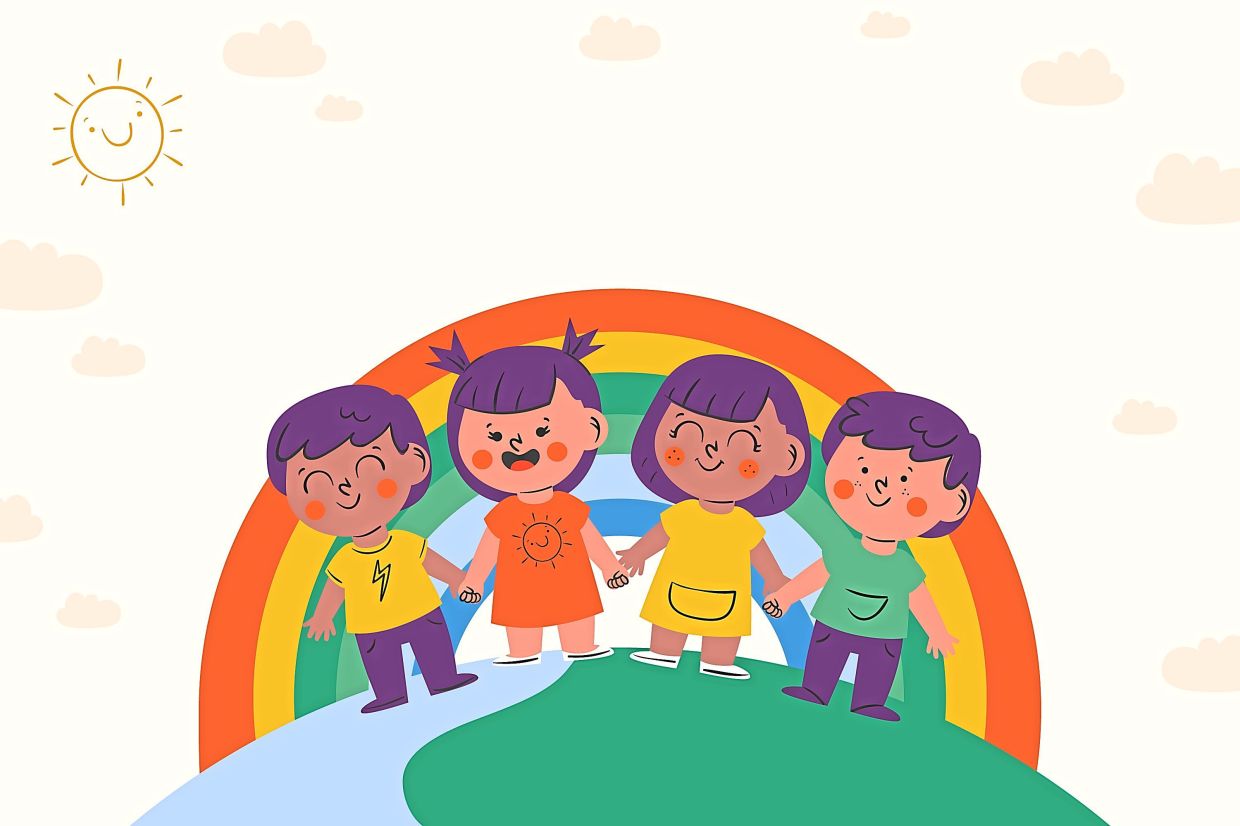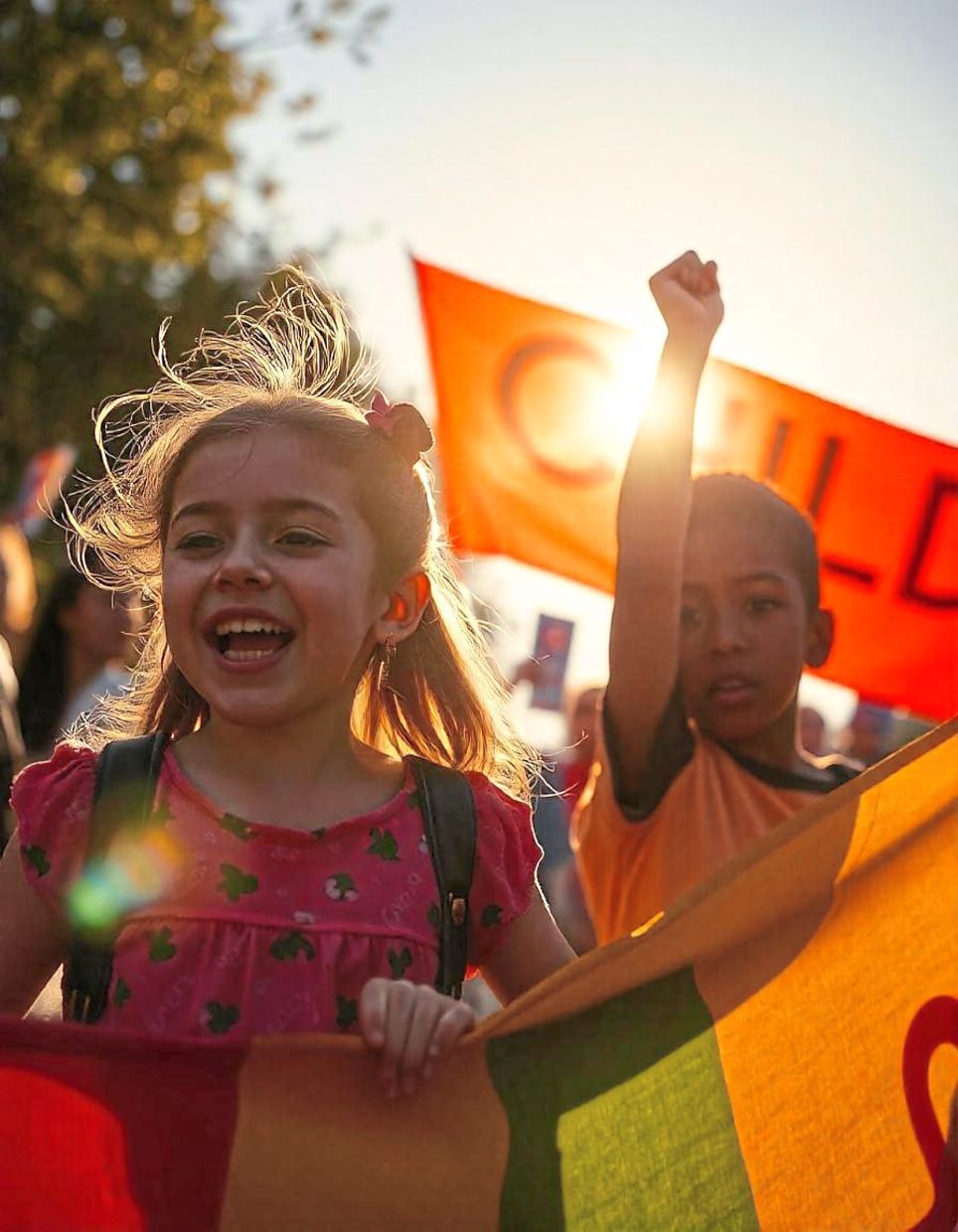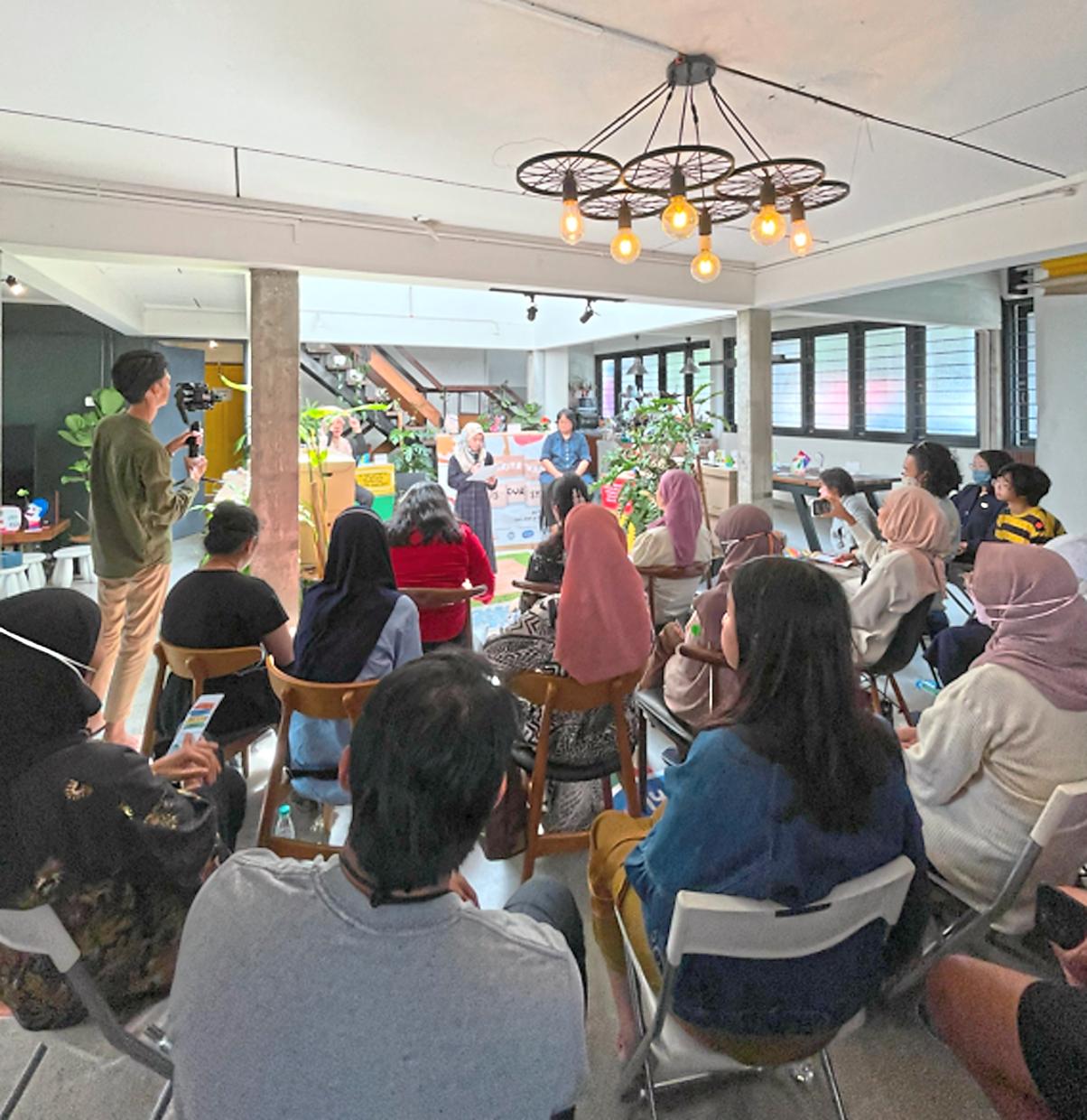Children are not just our future; they are our now. They deserve to take up space and explore life. And adults must support and guide, not dictate, their journeys, says Firzana. Photo: Freepik
In conjunction with Human Rights Day on Dec 10, child rights activist Firzana Redzuan says adults play a critical role in safeguarding children’s rights.
"Every child, regardless of his or her background, is entitled to equal rights," says Firzana, who studied civil and Syariah law. "As adults, we have a duty to uphold these rights, including protecting children from harm, abuse and exploitation."
Founder of Monsters Among Us (MAU) and president of Protect and Save the Children (PSC), Firzana says while both government and NGOs are actively advocating for child protection, it is the collective responsibility of all adults to ensure that the nation’s children are safe.
Malaysia, she says, has made significant strides in child protection through legal reforms.
The Sexual Offences Against Children Act 2017 criminalises child sexual abuse, grooming and pornography. The Penal Code also includes severe penalties for offences involving minors.
On top of that, the Child Act 2001 focuses on the welfare and protection of children, addressing abuse, neglect and exploitation.
Firzana highlights that the introduction of the Sexual Offences Against Children Act 2017 was a pivotal moment for the country.
"Before this, Malaysia lacked comprehensive legislation to address sexual offences against children," she explains. Special courts have since been established to expedite cases, ensuring justice is served swiftly.
Despite these advancements, gaps remain. Awareness of these laws and access to support are uneven, particularly in rural and underserved communities.
"Laws alone are not enough," Firzana says. "We need a cultural shift where children are empowered to report abuse and adults are equipped to support them."
Firzana’s MAU is led by youths, as one of the initiatives for child sexual abuse prevention in Malaysia. During the pandemic, the organisation launched Lapor Predator, a platform designed to encourage young people to report abuse. The initiative arose from a glaring need: increased online activity during lockdowns heightened the risk of exploitation, but many youths lacked supportive adults to guide them through reporting this.
"We handled 30 cases within our network alone," she recalls. "Imagine the scale of unreported cases nationally."
Through Lapor Predator, MAU connected survivors and bystanders with resources and support systems.
Another project, My Body, My Rules, addresses the sensitive topic of sex education.
Initially launched as a colouring book for young children, the project has expanded into art workshops for teenagers aged 13 to 17 – the demographic most vulnerable to sexual offences.
These sessions empower youths with knowledge about consent and personal safety while engaging them creatively.
"Comprehensive sex education (CSE) is crucial," Firzana emphasises.
"It equips children with the tools to recognise abuse and seek help. Parents and guardians must initiate these conversations early."
Firzana notes that many well-meaning adults are ill-equipped to handle disclosures of abuse.
"If a child confides in them, they often panic or respond inappropriately," she says.
To address this, MAU has developed a Train the Trainers module to help adults and young adults with discussions on CSE. This programme is implemented in partnership with several community organisations including Re:Play and Toy Libraries Malaysia, Soroptomist International Club of Damansara, Yayasan Chow Kit, Young Women in Leadership and Development (YWILD) and Canadian Funding for Local Initiatives, targeting underprivileged communities.
Working with grassroots communities requires sensitivity and adaptability, she adds. "Children at PPR Bukit Jalil are very different from those at Chow Kit or Sungei Way," Firzana observes.
"We can’t use a one-size-fits-all approach. We must understand each community’s unique challenges and collaborate on solutions."
Firzana stresses that child protection is an intersectional issue, intertwined with privilege, class and systemic inequalities.
Marginalised children such as rural or undocumented youths face significant barriers to education, healthcare and other fundamental rights.
"In rural communities, some schools are dilapidated or inaccessible, as in very far away and the children don't have transport. Some interior areas don't even have schools," she says.
International frameworks like the UN Convention on the Rights of the Child (UNCRC) must be localised to address these disparities effectively.
A trauma-informed approach is also essential in working with children and young adults, many of whom may be survivors of abuse.
Firzana explains that this perspective shapes how MAU trains its facilitators and conducts workshops. "We need to ensure our methods are survivor-centric, respecting their experiences and providing a safe space for healing."
With limited resources, MAU focuses on underserved communities, including B40 households, marginalised groups and the undocumented. Recent collaborations with stakeholders like the Canadian Embassy and local organisations have expanded their reach.
Social media has also become a powerful tool for awareness campaigns.
"Digital outreach allows us to challenge taboos surrounding CSE and educate the public that it’s not about promoting sex but about equipping youths with knowledge and agency. It's what's needed to solve the problem of teenage pregnancies and baby dumping," Firzana says.
Firzana’s other organisation, PSC adopts a broader approach, also targeting adults and institutions.
"Upcoming projects include training teachers and counsellors in Pengerang, Johor, to handle child sexual abuse cases more effectively. This is in collaboration with Minister in the Prime Minister's Department (Law and Institutional Reform) Datuk Seri Azalina Othman Said's office."
Firzana underscores that protecting children requires a unified effort.
"It’s not just the government or NGOs' job; every individual plays a role," she asserts.
"We must harness existing resources and expertise, break down silos and work synergistically to safeguard children’s rights."
"It is crucial for adults to set a positive example regarding personal boundaries and empower children to assert theirs without fear of shame or penalty. This fosters a culture of respect and safety, and addresses critical issues concerning children's safety, privacy and autonomy," she adds.
"A TikTok incident earlier this year highlighted this issue when a 24-year-old bus driver filmed primary school pupils without consent, prompting harmful comments. Such actions violate children’s rights under Article 16 of the UNCRC, normalise grooming behaviours and harm their understanding of boundaries.
"By leading through example, adults can help children develop a strong sense of self and safety.
"Children are not just our future; they are our now. They deserve to take up space and explore life. And adults must support and guide, not dictate, their journeys," she concludes.













